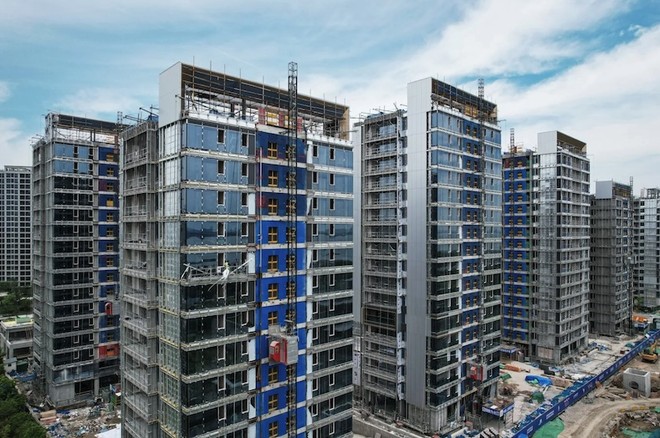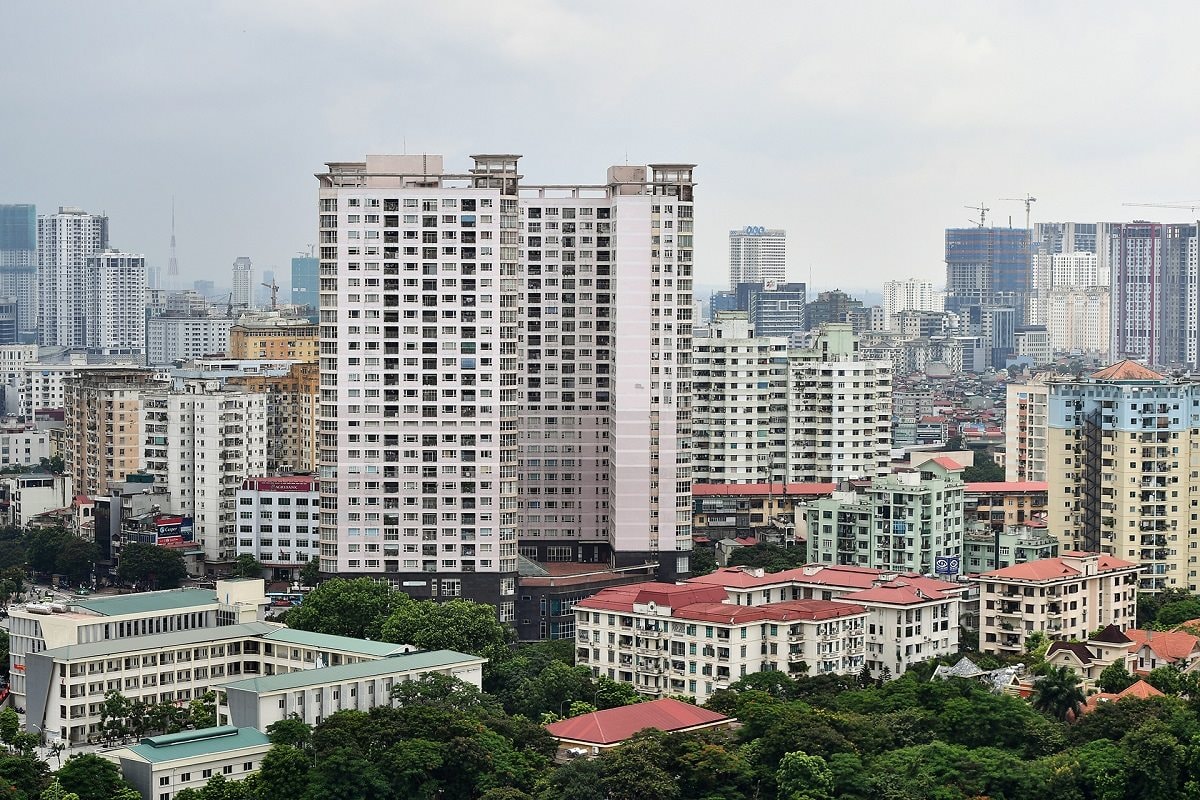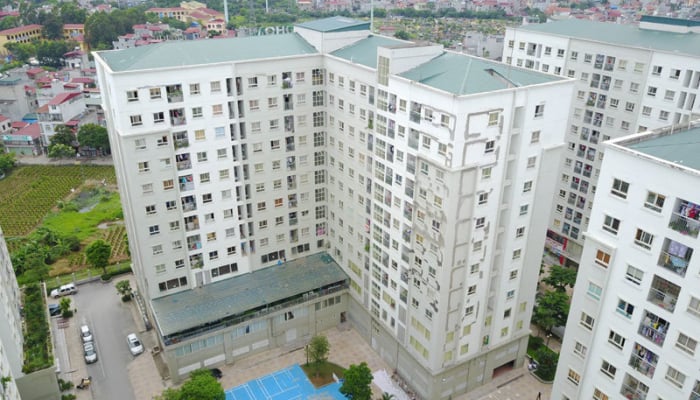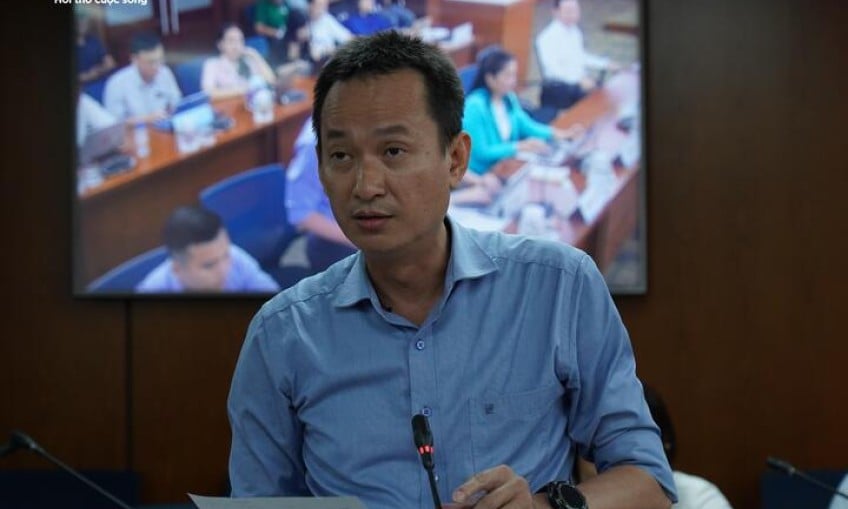Necessary model for low-income people
Commenting from the market perspective of the expert on the National Housing Fund model, Ms. Do Thu Hang - Senior Director of Research and Consulting Department of Savills Hanoi said that the research and implementation of this model in Vietnam is necessary to meet the housing needs of low- and middle-income people. In the context of rapid urbanization, real estate prices are constantly increasing, while the average income of people in cities is still low, the demand for housing is increasing.
Therefore, this research unit also believes that the National Housing Fund can be a solution to facilitate people's access to low-cost commercial housing and social housing, increasing the ability of workers to own housing.

Ms. Do Thu Hang - Senior Director of Research and Consulting, Savills Hanoi
In addition, the supply of affordable housing will be maintained stably, ensuring a balance in supply, thereby creating a balance of supply and demand for the real estate market. It can be seen that the National Housing Fund model can not only play a major role in solving the housing problem, meeting the housing needs and stabilizing the lives of low- and middle-income workers, but also promoting the market to develop in a more sustainable direction.
Therefore, the National Housing Fund is approved and implemented to promote efficiency, it is necessary to define clear objectives, diversify capital sources and enhance transparent management. The Fund needs to focus on providing financial support to people who need to buy or rent houses at suitable prices. In fact, many low-income workers do not meet the conditions to buy social housing but also do not have enough financial capacity to own commercial housing, especially in large cities.
"Experience from countries such as Singapore and China shows that the National Housing Fund can play an important role in ensuring the right to housing for workers. There needs to be a mechanism to assess the level of contribution and affordability of target groups to ensure fairness and targeting," said Ms. Do Thu Hang.

Many countries neighboring Vietnam are developing low-cost housing models well.
In addition to contributions from workers, businesses and the state budget, for the National Housing Fund to operate sustainably, it is necessary to encourage the participation of real estate businesses. In return, the state can apply preferential policies such as tax exemptions, financial support, etc. to attract investment in the social housing segment.
In addition, for the National Housing Fund to operate effectively, there needs to be a strict and transparent management mechanism to avoid loss, corruption and ensure proper use. Some possible solutions include: issuing specific regulations on how to mobilize, manage and allocate the fund; regulating housing standards to avoid poor quality construction; setting binding conditions to prevent speculation and misuse; building a public electronic information portal on revenue and expenditure, beneficiary lists, project progress; and establishing an independent monitoring mechanism, allowing people as well as social organizations to monitor the fund's operations.
Building a National Housing Fund requires taking into account many factors.
Commenting on the establishment of a model to "decode" the supply source for this low-cost housing market, Ms. Giang Huynh - Director of Research and S22M Savills HCMC said that in many European countries (France, Germany, Sweden) and Asian countries such as Korea, Singapore or China, the Housing Development Fund model has been operating for decades to support people in accessing housing effectively.
"Some common points of these models are clear legal framework, diversified capital mobilization, synchronous land fund and infrastructure planning, transparent governance, close supervision and synchronous coordination from all resources," said Ms. Giang Huynh.
With a clear legal framework, countries that have successfully applied this model all have their own laws and regulations for the operation of the Fund or housing development agency, helping to create a transparent and stable environment. In addition, the diversification of capital mobilization channels is also actively implemented through taking advantage of many channels: state budget, bond issuance, contributions from the private sector, international organizations, pension funds, etc. to ensure sustainable capital flows. In addition, there is the synchronous planning of land funds and infrastructure, along with a transparent governance system and strict supervision. Finally, there is the synchronous coordination of all resources.

The National Housing Fund model will solve the supply of affordable housing in Vietnam.
It can be said that successful models all have strong government guarantees, stable financial mechanisms, transparent management, synchronous land planning and close coordination with the private sector. In some models, buyers contribute a fixed amount of money to a fund, along with certain binding requirements, to access preferential home loan policies.
Building a large model like the National Housing Fund requires taking into account many factors to avoid problems and waste during implementation. Factors such as legal framework, management structure, capital sources, financial support mechanisms, public-private coordination, monitoring mechanisms, etc. are all major issues that need to be clearly developed. When implementing the model, it is necessary to learn from countries that have successfully implemented it and have similarities in institutions, policies and market conditions similar to Vietnam.
Source: https://www.congluan.vn/quy-nha-o-quoc-gia-la-giai-phap-dam-bao-quyen-co-nha-o-cho-nguoi-lao-dong-post340798.html


![[Photo] General Secretary To Lam receives Japanese Ambassador to Vietnam Ito Naoki](https://vstatic.vietnam.vn/vietnam/resource/IMAGE/2025/4/3/3a5d233bc09d4928ac9bfed97674be98)
![[Photo] Moment of love: Myanmar people are moved to thank Vietnamese soldiers](https://vstatic.vietnam.vn/vietnam/resource/IMAGE/2025/4/3/9b2e07196eb14aa5aacb1bc9e067ae6f)

![[Photo] Special relics at the Vietnam Military History Museum associated with the heroic April 30th](https://vstatic.vietnam.vn/vietnam/resource/IMAGE/2025/4/3/a49d65b17b804e398de42bc2caba8368)
![[Photo] A brief moment of rest for the rescue force of the Vietnam People's Army](https://vstatic.vietnam.vn/vietnam/resource/IMAGE/2025/4/3/a2c91fa05dc04293a4b64cfd27ed4dbe)
![[Photo] Prime Minister Pham Minh Chinh chairs meeting after US announces reciprocal tariffs](https://vstatic.vietnam.vn/vietnam/resource/IMAGE/2025/4/3/ee90a2786c0a45d7868de039cef4a712)


















































































Comment (0)